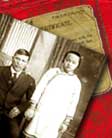 |
NATURALIZATION
IS THERE A MOTION?
(Examiner will move admission)
I am pleased to GRANT THE MOTION and to ADMIT THE RECOMMENDED MEMBERS OF THIS GROUP TO UNITED STATES CITIZENSHIP, WITH THE NAME CHANGES AS INDICATED. WILL THE APPLICANTS PLEASE RISE TO TAKE THE OATH OF CITIZENSHIP?
(Clerk administers oath)
YOU MAY BE SEATED.
SPEECH OF WELCOME
ON BEHALF OF ALL THE JUDGES OF THIS COURT IT IS MY PLEASURE TO WELCOME ALL OF YOU TO YOUR NEW POLITICAL FAMILY AND TO CITIZENSHIP IN THE UNITED STATES AND TO CONGRATULATE EACH ONE OF YOU ON THE PERSONAL ACHIEVEMENT THAT BECOMING A CITIZEN REPRESENTS.
We fell deep respect for each of you for this accomplishment. Changing cultures and nations, and learning a difficult new language, takes great courage. We also feel gratitude to you, because by choosing this country you have honored us and our traditions. You come to citizenship here from countries in all parts of the world, from diverse racial and cultural backgrounds. As I am sure you understand, the diversity in this room is not something new to our country. From its beginning this nation has been enriched and strengthened by infusions of peoples from a wide range of backgrounds. In this way the great cultural heritages of the world have become our heritage as a nation.
In the oath you have just taken you have renounced political allegiance to your native land. This is necessary, of course. But taking this oath does not mean that you must stop loving that country. It does not mean that you should forget your national heritage and the culture in which you were raised. If you were to renounce your native culture, you would be depriving the rest of us of a great source of learning and pleasure. We know that there is room in your hearts for loyalty to the United States and at the same time, an abiding love for the country of your origin.
Over the centuries people have come to the United States largely for two reasons:
(1) to find new opportunities to better their lives, and to escape oppression. They have come, in short, in search of freedom and equality.
In the fundamental documents that shape our political life we have committed ourselves irreversibly to freedom and equality as the central, dominating values in our society. As our progenitors announced in the Declaration of Independence, "we hold these truths to be self-evident, that all people are created equal, that they are endowed with certain inalienable rights, that among these are life, liberty, and the pursuit of happiness."
Our Constitution contains not only the Bill of Rights, which guarantees such fundamental freedoms as speech, religion and assembly, but also the great amendments that were added after the Civil War, amendments that compel government at all levels to treat every person as equal before the law. These are the ideals that inspire our form of government. And it is in large measure because of these ideals that I am free to say, in this ceremony that is sponsored by our government, that, in some measure, we have failed.
One reason for that failure is that some people have abused their freedom by taking advantage of others, even, in the past, by enslaving them. It is one of the cruel ironies of history that at the same time some Americans were drafting the words in the Declaration of Independence that pronounced all people equal, other Americans were stealing black people from Africa and bringing them to this country to sell them into slavery. It took 85 years and one of the most savage civil wars in all of history to eliminate slavery from America, but even after the carnage of that war there remained many ways in which minority Americans and women were not treated equally under the law. During this century we have added provisions to the Constitution and many new statutes that bring us much closer to achieving our lofty political aims. And I believe that, as a nation, we truly are committed to the full realizations of our ideals. But work remains to be done. So we ask you to join with us as we strive to fulfill the dream that began taking shape more than 200 years ago.
There are some specific things you can do to contribute to the attainment of these goals. The first is the most difficult, and the most important. It must begin in your hearts. It is made imperative by the diversity in this room. That diversity can be a source of destructive animosities. Which it will be depends on whether each of us respects the rights of others in the same way that we expect others to respect our rights. To make your most important contribution to the beauty and vitality of this country, you much treat every other person equally, and with the same respect that the law commands the government to show you.
Another important way you can contribute is by exercising your right to vote. Thoughtful voting by all citizens is our first and last line of protection against corruption and tyranny. Finally, you can help make real some of your most precious values by serving as jurors when you are called. Justice is one of the most sacred things on earth, and in our system, conscientious jurors are essential to justice.
Let me close by repeating my congratulations to all of you. I hope you will always look back on today as marking a profound new beginning for you and your loved ones. I also hope that this is only the first of many wonderful achievements that you will be celebrating as citizens of the United States of America. As we close this ceremony, we ask you to express your congratulations to one another through a round of applause.
Thank you and godspeed.
Commentary by Producer/Director Jennie F. Lew
Wayne D. Brazil serves as a United States Magistrate Judge for the U.S. District Court, Northern District of California in Oakland. or 12 years, Judge Brazil has addressed thousands of newly sworn U.S. naturalized citizens in the San Francisco Bay Area. Though he no longer does this ceremony, he mentions that U.S. Naturalization ceremonies are some of his favorite events to administer because they are so full of meaning for the particpants and their families, as well as the nation
Reprinted here, with the permission of Magistrate Brazil, is the entire speech of whih excerpts appear in the closing segment of the documentary SEPARATE LIVES, BROKEN DREAMS. It speaks eloquently to both the strengths and potential divisiveness brought on by diversity, and the challenge for all to "treat every other person equally, and with the same respect that the law commands the government to show you."

|





